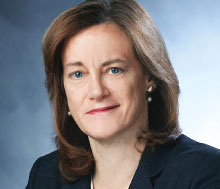Psychiatrists Still Not Reimbursed on Par with Primary Care Physicians
Abstract
Although the laws mandating equal pay have been in effect for several years, states are not enforcing them.

Medicaid agencies should conduct analyses to determine where there are disparities in reimbursement and take action. — Tami L. Mark, Ph.D., M.B.A
Medicaid often reimburses psychiatrists less than primary care physicians for treating patients with mental or substance use disorders, according to a report in Psychiatric Services in Advance. This disparity in reimbursement may explain why psychiatrists are less likely to participate in Medicaid than primary care physicians and why some regions face a shortage of psychiatrists, the researchers wrote.
Tami L. Mark, Ph.D., M.B.A., senior director of behavioral health financing and quality measurement at RTI International, and colleagues analyzed data from outpatient medical claims from 2014 for 11 states. The claims were for a primary behavioral health diagnosis such as a mental or substance use disorder and included evaluation and management procedure codes of 99213 (established patient office visit, low to moderate severity) or 99214 (established patient office visit, moderate severity). The states included were Georgia, Idaho, Michigan, Minnesota, Mississippi, New Jersey, Pennsylvania, South Dakota, Vermont, West Virginia, and Wyoming.
Primary care physicians were reimbursed more than psychiatrists for code 99213 in 10 of the states and for code 99214 in nine of the states. Primary care physicians were reimbursed $1 to $34 more than psychiatrists for code 99213 and $5 to $40 more for code 99214.
“The disparity in reimbursement rates between psychiatrists and primary care physicians is inconsistent with the Mental Health Parity and Addiction Equity Act of 2008 (MHPAEA), which requires that provider reimbursement rates for treating mental and substance use disorders be based on criteria that are comparable to the criteria for setting reimbursement rates for medical providers and applied no more stringently,” the researchers wrote. However, Medicaid managed care plans and the Children’s Health Insurance Program had until 2017 to comply with the MHPAEA, they noted.
“The regulations are built into Medicaid. They just are not being followed. We would encourage state Medicaid agencies to conduct similar analyses and publish the results. If pay is not comparable, they can take action to make it comparable,” Mark told Psychiatric News.
“Part of the challenge is that it has been easy for some to argue that the different rates are justifiable because you may not be offering the same services, but we took away that argument by looking at the same codes for [both psychiatrists and primary care physicians],” she said.
Mark added that the disparity’s effects can trickle down to patients. “Only 42% of psychiatrists participate in Medicaid programs, compared with over 70% of primary care and other physicians. It has a direct relationship to patient access to high-quality care,” she said.
“This is not something that is simply self-serving, where psychiatrists are only looking to make more money,” said Robert Trestman, M.D., Ph.D., the chair of APA’s Council on Healthcare Systems and Financing and the chair of the Department of Psychiatry and Behavioral Medicine at Carilion Clinic and the Virginia Tech Carilion School of Medicine. He noted that for many psychiatrists, student debt burden and the administrative costs of running a practice need to be offset, and that paying psychiatrists on par with other physicians is an investment in psychiatrists’ ability to continue to provide services.
“When we’re paid fairly, we can then build the infrastructure to provide more needed care in our communities,” Trestman said. “We need to advocate through legislative branches as well as through our contacts locally in each state to build support, including partnering with the National Alliance on Mental Illness, psychologists, social workers, and others. We should be doing all we can to make a social commitment to not simply accept the way things are, but to advocate for our patients.”
Although the study examined data from 2014, disparities in reimbursement remain a challenge in 2020, Trestman said. “The only thing that has changed is the date on the checks. More recent data is anecdotal, but it is absolutely consistent” with continued unequal reimbursement, he said.
“It takes a lot of work to change a process and keep it from changing back to a way that is inappropriate,” Trestman added. “It took repeated efforts to get the parity law passed, and now it will take work to assure state implementation and monitoring. We need to keep at this.”
This study was supported by Arnold Ventures. ■
“Comparison of Medicaid Reimbursements for Psychiatrists and Primary Care Physicians” is posted here.



